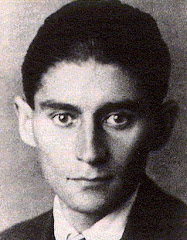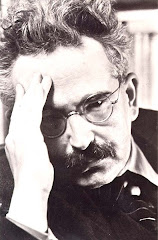At least two possibilities open up from these preliminary reflections.
1) The death of the high priest, that is, the death of a relative common to all parties, represents the death of a shared basis for justice. As such, the manslaughterer must be released so as not to fall victim to the arbitrariness, indefiniteness and partiality of the law, which comes into effect when human authority is thrown into question. (What happens to justice between the death of one high priest and the succession of another?) What relation can the new high priest possibly have to events which preceded his rise to power, to justice carried out under the domain of a potential rival?
2) The death of the high priest, although he will be replaced by another, represents a temporary death of God himself—in Martin Buber’s terms, an eclipse of God. In the previous interpretation, the death of the high priest represents a breach in the possibility of unanimous consent. The implicit view of justice expressed is positivist. In this interpretation, however, the death of the high priest signifies a more radical problem. We are not concerned with the practicalities of justice, but with its very essence. Without God, there can be no justice at all. Even assuming unanimous consent on the part of humans to appoint a priest/judge in their lives, without the Judge who sees all, any form of arbitration will be, to some degree, arbitrary. If, according to Buber, the Holocaust is an example of a time in which God’s face became totally hidden from the world, it is no coincidence that in Nazi Germany at large as well as in the concentration camps justice became impossible.
The high priest protects and condemns the guilty, but with his death, either as the death of a shared reference point or as the death of an absolute standard (ayn sof has no standards), the city of refuge becomes temporarily meaningless.
The life-term of the high priest, like the life-term of the Supreme Court Justice, aims at creating the space for “impartial” and fair justice system. But in the case of the high priest, this is especially so. For we know that the task of the high priest was quite dangerous and that every year on the Day of Atonement the high priest, if corrupt or unlearned, would die. In other words, in times of political and ethical turmoil, when the average life-term of the high priest was a single year, the life-sentences to the city of refuge were also quite short. For how could justice exist in a world in which the judges were themselves unjust? This, the Torah knew.





